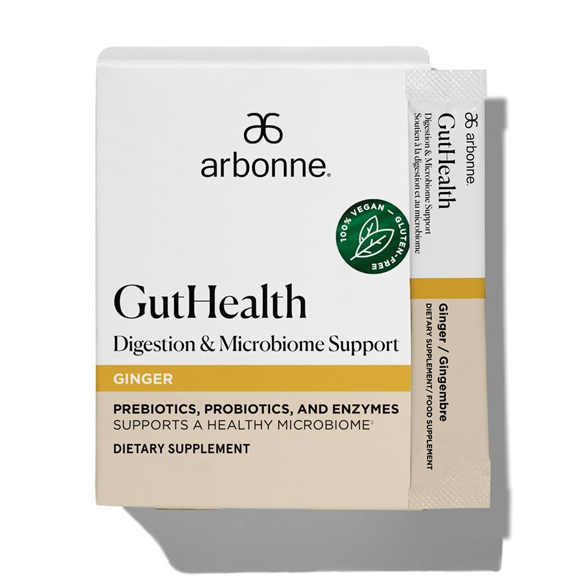Looking for a Gut Health Supplement? Here’s What You Need to Know
Looking for a Gut Health Supplement? Here’s What You Need to Know
Blog Article
Discover the Trick to Digestion and Immunity With Digestive Tract Wellness Support

Comprehending Gut Health And Wellness
Recognizing digestive tract wellness is important for overall wellness, as it plays a significant function in food digestion, immunity, and also psychological health. The gut, comprising the stomach system, is accountable for damaging down food, absorbing nutrients, and expelling waste. A balanced digestive tract setting makes sure efficient food digestion, permitting the body to utilize nutrients successfully.
Moreover, digestive tract health and wellness significantly affects the immune system. The digestive tract houses a significant portion of the body's immune cells, and a healthy digestive tract can aid repel pathogens and decrease inflammation. Interruptions in intestine health can result in an overactive immune response, possibly adding to autoimmune problems and allergic reactions.
Additionally, the digestive tract is often referred to as the "second brain" due to the gut-brain axis, a complicated communication network linking the brain and the digestive tract. This connection influences mood, cognition, and emotional well-being. Issues such as dysbiosis, characterized by an imbalance in gut bacteria, have been associated with psychological wellness problems, consisting of stress and anxiety and anxiety.
The Digestive Tract Microbiome Explained

The intestine microbiome, a varied neighborhood of bacteria residing in the gastrointestinal system, plays an essential function in maintaining digestive wellness and general wellness. Comprising trillions of microorganisms, infections, fungi, and various other microorganisms, this complex ecosystem help in the digestion of food, the synthesis of important nutrients, and the law of metabolic procedures.
Each individual's intestine microbiome is special, influenced by variables such as diet plan, lifestyle, genes, and environmental direct exposures. A balanced microbiome sustains ideal digestion by damaging down complicated carbohydrates, producing short-chain fats, and helping with the absorption of nutrients. Alternatively, an inequality, usually referred to as dysbiosis, can result in digestive problems, including short-tempered bowel syndrome (IBS) and inflammatory bowel illness (IBD)
Study has shown that a varied microbiome is connected with far better health and wellness end results, underscoring the significance of dietary options in nurturing these bacteria. Foods rich in fiber, probiotics, and prebiotics, such as fruits, vegetables, and fermented items, can promote a healthy and balanced microbiome. Understanding the digestive tract microbiome is essential for establishing targeted treatments aimed at boosting gastrointestinal health and preventing stomach conditions.

Connection In Between Digestion and Resistance
A durable link exists between food digestion and resistance, highlighting the important duty of the intestine in preserving general health and wellness. The stomach tract is home to trillions of microorganisms that create the gut microbiome, which significantly affects both digestive procedures and immune actions. This complicated environment aids in breaking down food, soaking up nutrients, and offering vital metabolites that support immune feature.
When food digestion is reliable, the digestive tract barrier stays intact, avoiding hazardous virus from getting in the blood stream (gut health supplement). On the other hand, inadequate food digestion can result in an imbalance in the microbiome, causing dysbiosis, which has actually been linked to numerous health and wellness problems, consisting of autoimmune diseases and inflammatory conditions. Around 70% of the immune system resides in the gut-associated lymphoid cells (GALT), which engages carefully with the gut microbiome. This interaction guarantees that the body immune system can successfully compare damaging and advantageous compounds.
Tips for Sustaining Intestine Health And Wellness
Sustaining intestine health and wellness is crucial for keeping both digestive performance and a well-functioning immune system. To foster optimum digestive tract wellness, consider including several functional techniques into your daily regimen.
First, focus on hydration. Drinking adequate water supports digestion and aids preserve the mucosal lining of the intestinal tracts. In addition, normal physical activity can enhance digestive tract motility and advertise a use this link diverse microbiome.
Mindful eating practices are also crucial. Eating food completely and eating slowly can help digestion and protect against overindulging, which may stress the digestive browse around here tract. Moreover, handling stress with methods such as reflection, yoga, or deep-breathing workouts can favorably affect intestine health and wellness, as stress is known to disrupt digestive system procedures.
Incorporating prebiotics and probiotics into your routine is another reliable method. While details foods will be talked about later, recognizing the significance of these parts is essential. Prebiotics act as food for beneficial gut bacteria, while probiotics present online advantageous microorganisms.
Last but not least, prevent too much use of anti-biotics, as they can interfere with the equilibrium of gut flora. By adhering to these pointers, you can dramatically add to the upkeep of a healthy gut, which is essential for total health and wellness and vitality.
Foods That Promote Digestive Tract Wellness

Fermented foods, such as yogurt, kimchi, kefir, and sauerkraut, are rich in probiotics, which are valuable bacteria that sustain gut flora and enhance digestion. These foods can aid restore equilibrium in the digestive tract, especially after antibiotic usage or digestive system disturbances.
In enhancement to fermented alternatives, prebiotic foods, such as garlic, onions, asparagus, and bananas, work as nutrients for these probiotics, advertising their growth and task. These soluble fibers support intestine mobility and can relieve concerns like bowel irregularity.
In addition, integrating high-fiber foods, including whole grains, vegetables, this article fruits, and legumes, is important for keeping a healthy and balanced intestine. Fiber aids in regular defecation and helps avoid digestive disorders.
Lastly, omega-3 fatty acids discovered in fatty fish, flaxseeds, and walnuts have anti-inflammatory buildings that can further support intestine wellness. Highlighting these foods in your diet plan can cause a durable digestive system and boosted immune function.
Final Thought
In final thought, focusing on gut health is necessary for enhancing digestion and improving resistance. A balanced intestine microbiome, affected by dietary options and way of life elements, plays an important function in nutrient absorption and swelling reduction.
Recognizing gut health is essential for general health, as it plays a significant function in digestion, immunity, and even psychological wellness. The intestine houses a significant section of the body's immune cells, and a healthy intestine can assist fend off microorganisms and reduce swelling.Furthermore, the gut is frequently referred to as the "second mind" due to the gut-brain axis, an intricate interaction network connecting the mind and the gut.A robust connection exists in between digestion and immunity, highlighting the important role of the digestive tract in maintaining general health and wellness.In verdict, prioritizing digestive tract health is essential for optimizing food digestion and improving immunity.
Report this page